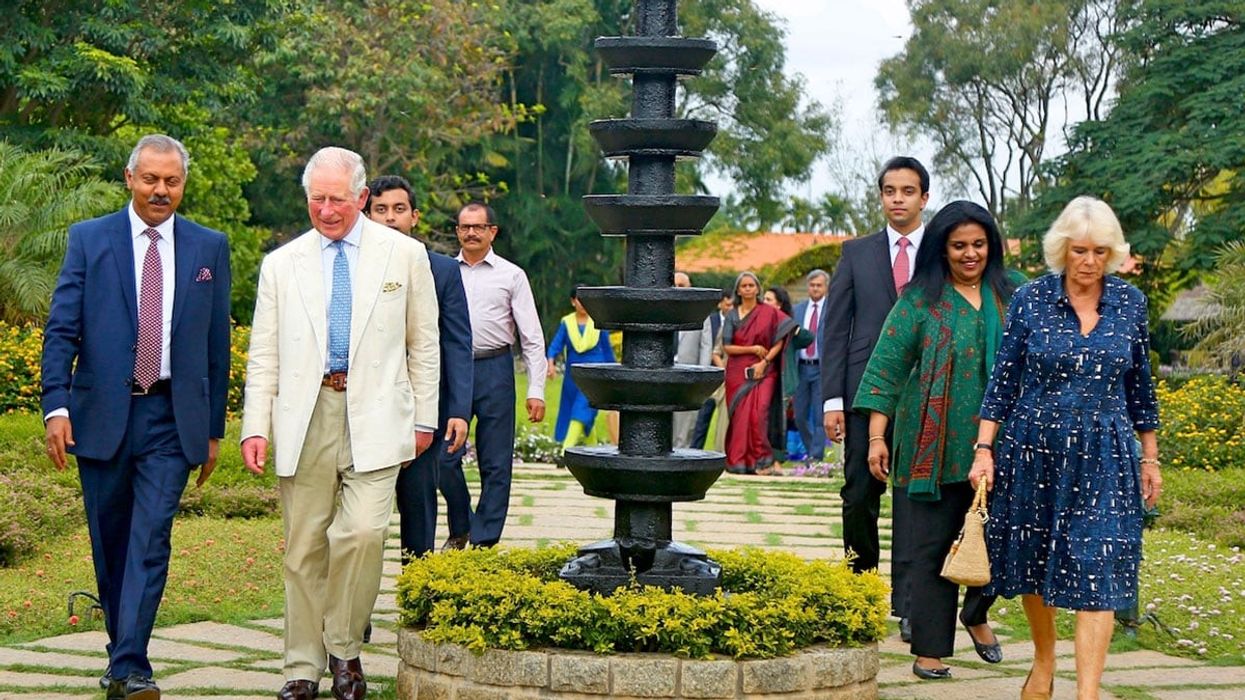KING CHARLES III and his wife Queen Camilla have made a brief stopover in India following their recent trip to Australia and Samoa, Buckingham Palace confirmed, staying at a holistic health centre they have visited before.
The royal couple stayed at the holistic health centre, known for rejuvenative treatment, including yoga and meditation sessions and therapies in Bengaluru in southern India, an official said.
They made a short restful stopover in the country to break their long journey back to the UK from the Commonwealth Heads of Government Meeting (CHOGM) in Samoa.
Indian media reported that the royal couple had arrived in Bengaluru on Oct. 27 and had since been at the Soukya International Holistic Health Centre, where they had enjoyed yoga and meditation sessions.
"Their majesties had a short private stopover in India to help break the long journey back from Samoa," a Buckingham Palace spokesperson said. "They return to the UK this morning."
Charles, who has long advocated alternative medicines and therapies, has paid many visits to India and to the Soukya centre itself before. He celebrated his 71st birthday there in 2019.
It is run by Dr Issac Mathai, who is among the few individuals from India invited to attend his coronation as the UK's King on May 6 last year.
"The couple underwent therapeutic yoga, enjoyed a strictly vegetarian diet with eggs. They underwent rejuvenative treatment, which also included meditation and therapies," an official at the facility said. "The King received wellness treatment, including Ayurveda, Homeopathy and Naturopathy."
Security personnel stand guard outside the Soukya International Holistic Health Centre (SIHHC) in Bengaluru on October 30, 2024. (Photo by IDREES MOHAMMED/AFP via Getty Images)It was like a typical day for them just like for any other guest who visits the facility.
"Their day began with morning therapeutic yoga which is taught by a specialised doctor knowing the medical condition or any health issue if any. This was usually a one-on-one session. After breakfast, then treatment started which was followed by lunch," he said.
"Food was prepared from fresh organic produce from the farm at the campus and the evenings were more about meditation. That's how his days were here. This is done for every guest. The only difference is with each person's medical condition or their health issue, we fine tune it accordingly."
During the three-day stay, they also took a tour of the organic farming and medicinal garden, visited a cow shed, engaged in eco-friendly practices and walked on the grasses -- felt connected to nature as the campus is home to butterflies, dragon files, frogs and wild rabbits.
According to him, the King planted a Jacaranda sapling at a centrally located spot of the 30-acre campus during his visit.
Giving details about the treatment offered at the facility, the official said, "We have a philosophy of holistic wholesomeness. King Charles has been involved with that since the last 30-40 years and he was the patron of the British Association for Holistic Medicine and Healthcare.
"He (Charles) is the patron of the faculty of Homeopathy. So, he is actively involved in it and he believes in it. All these organic gardening and medical gardening, preservation, water harvesting system, solar panels, biogas plant all fascinate him."
A royal source said the stopover was not connected to his ongoing health issues, but was to allow him to rest as part of planning for the long-distance travel his recent tour had involved at a location he was familiar.
His cancer treatment will resume on his return to Britain, the source said.
(Agencies)





